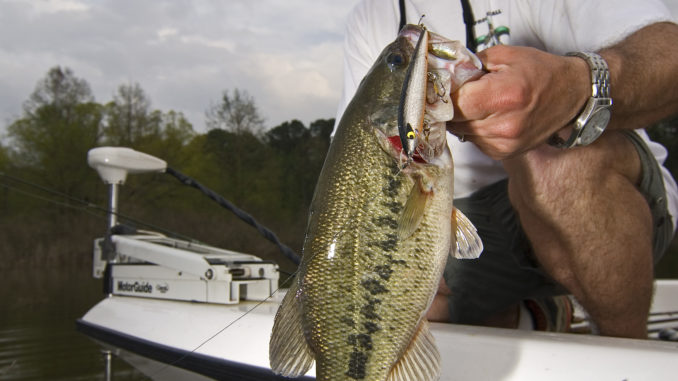
LDWF to include public input in management schemes, official says.
The recent study of public perceptions about current bass regulations for the Atchafalaya Basin is just the first step in a Louisiana Department of Wildlife and Fisheries review that could result in changing the management scheme that has been in place for nearly 20 years, an LDWF official said.
You’ve got to be careful sometimes when you impose a regulation,” LDWF’s Mike Wood said of the current regulations. “It’s worked, I guess, in a sense: It protects young fish long enough to spawn.”
However, the 14-inch minimum size limit has not resulted in a surge of big fish, mainly because the proximity of the Basin to the coast.
“Since (the regulations were implemented after Hurricane Andrew), we’ve had 3 hurricanes and flooding,” said Wood, who is LDWF’s director of Inland Fisheries. “We’ve had a repeated cycle of building up a great fishery in the Basin and losing a great fishery in the Basin.
“I think it’s obvious to everybody that the natural occurrences we’ve had have removed healthy populations from the stock.”
The recent study showed that more anglers support the current 14-inch minimum size limit and 10-bass bag limit than oppose those regulations, but Wood said that has to be taken with a grain of salt.
“I think that most folks assume that those are the recommendations of the Department, and they are but they are dated,” he explained. “We want to review that again.”
That review could take some time.
“We’re going to go through kind of a long process, but when we do that at least we can say, OK, if you do this you will have these results,” Wood said. “We want to have confidence to be able to tell folks that if you go with it you’re going to get results.
“When we impose regulations, I want to be able to tell people they’re going to get something out of it.”
This review is part of move by the agency to include public input in management decisions, whereby the desires of anglers will be taken into account whenever regulations are reviewed.
In this instance, state managers will complete their study and then come up with their recommendations. That could be to leave the regulations unchanged, to tweak them or to change them altogether.
“Our deal is we don’t want to hurt the fishery,” Wood said. “It depends on biological review, which has to say that a change is appropriate, then I go to the public with that information and say, ‘Here, guys, it’s your fisheries. What do you want to do?’”


